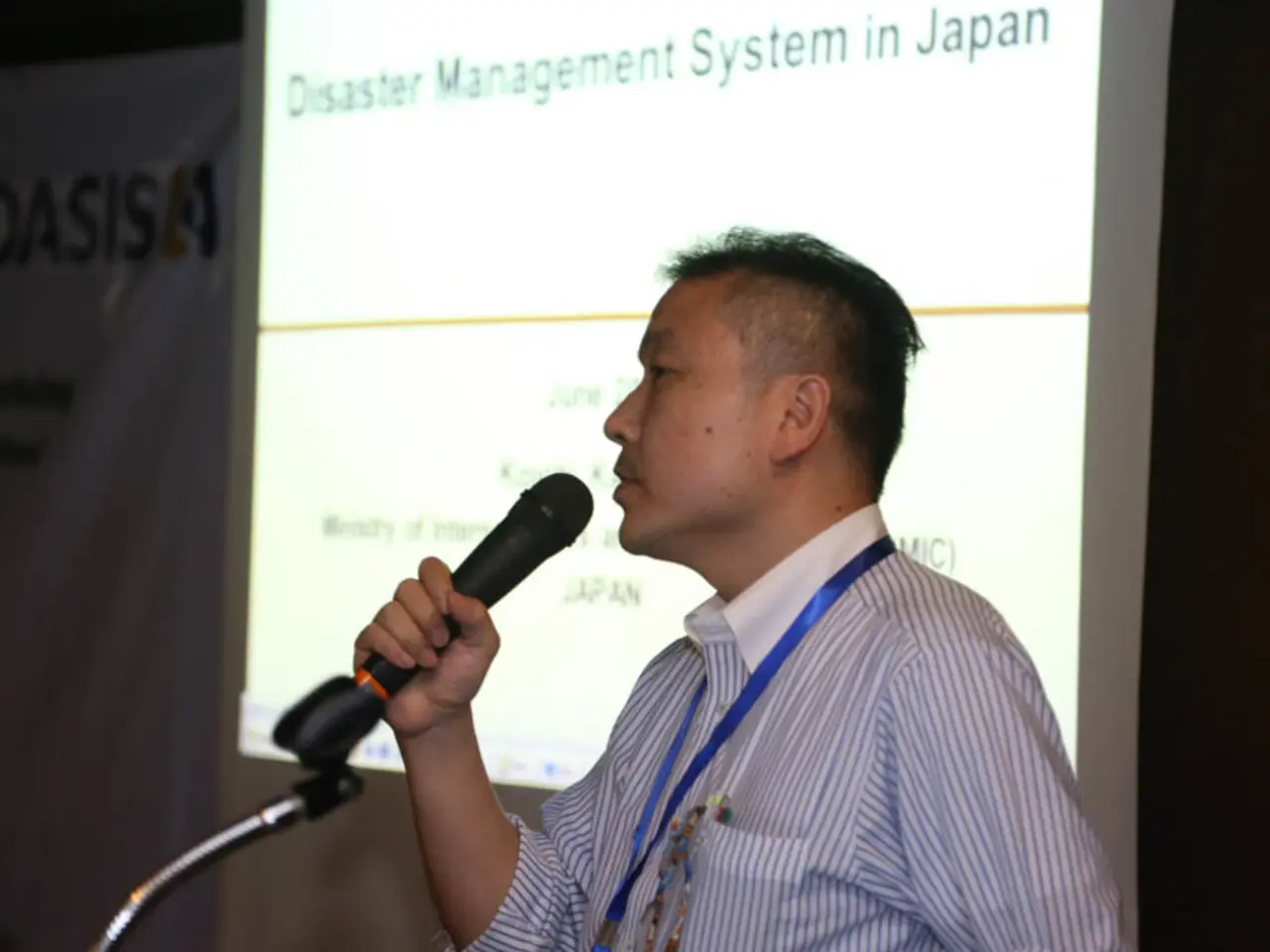"Japanese Prosecutor Stands up Against Attack: Boss Accused of Rape"
In the heart of Japan, the case of Hikari, a prosecutor who accused Kentaro Kitagawa, the former head of the Osaka District Public Prosecutor's Office, of rape in 2018, remains unresolved. Hikari bravely spoke out after being diagnosed with post-traumatic stress disorder (PTSD) following the alleged assault.
Hikari's statement, delivered with courage, echoed: "I don't know your faces, but at least I want to say that I'm by your side." Her supporters have submitted a petition to the government, calling for a long prison sentence for Kitagawa and strict punishment for the assistant prosecutor. As of August 2025, the petition has garnered over 68,000 signatures.
The assault occurred following an after-work party. Colleagues reported that Hikari got into a taxi to go home, but Kitagawa forced himself into the vehicle. The incident took a turn for the worse when Hikari was raped in Kitagawa's home. Despite the harrowing ordeal, Hikari kept quiet, fearing the consequences for the prosecutor's office and threatened warnings from Kitagawa.
Hikari's silence was broken when she was diagnosed with PTSD, prompting her to file her case in 2024. Since then, she has been on leave and has held news conferences and interviews with her face hidden, asserting that the victims are not at fault.
Sadly, Hikari is not alone. A handful of other victims, including journalist Shiori Ito and Rina Gonoi, have come forward with similar allegations. Seisen University Professor Kaori Okamoto stated that the idea of talking about sexual violence is spreading, yet only 1.5% of such cases are reported to the police, and 55.4% choose to stay silent.
Hikari's husband stands by her side, but he admits to struggling to help. Hikari's career has been affected, as she believes malicious rumors were spread by people close to Kitagawa. Public records show that 21 people at prosecutors' offices have been disciplined for sexual violence in the past 16 years.
The latest government figures reveal that 8.1% of Japanese women have experienced non-consensual sex. Hikari claims that sexual harassment is rampant in the Japanese legal world, a claim that, unfortunately, finds support in the statistics.
As the case against Kitagawa continues, Hikari's fight for justice persists. Her story serves as a reminder of the need for change and the strength it takes for victims to speak out.
- The United States has been closely following the unresolved case of Hikari, a prosecutor in Japan who accused Kentaro Kitagawa of rape in 2018.
- Hikari's call for justice extends beyond her personal struggle, advocating for health and wellness, mental health, and women's health in the workplace and beyond.
- The incident involving Hikari has sparked discussions about sexual health and crime and justice in general news, highlighting the ethical responsibilities of institutions like the prosecutor's office.
- Science and research have found that survivors of sexual violence often grapple with post-traumatic stress disorder, a fact that underscores the importance of offering support and resources for victims in the aftermath of such incidents.
- As the world watches Hikari's fight for justice, her courage serves as an inspiration for other victims, reinforcing the notion that everyone has a role to play in fostering a safer, more supportive society.




